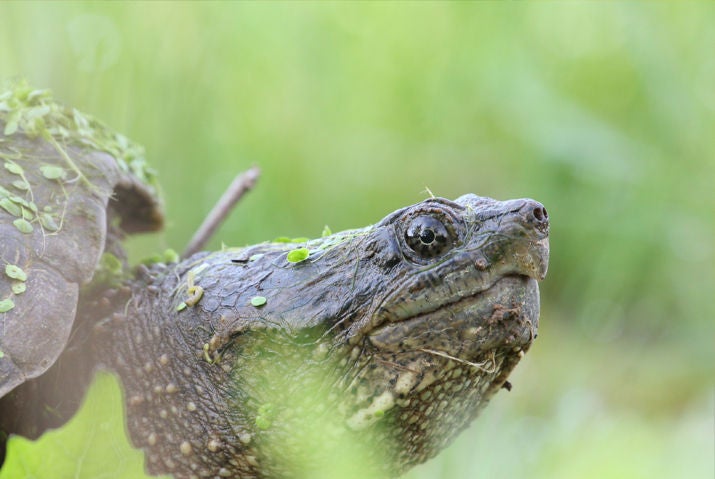The Canadian Wildlife Federation and Scales Nature Park have joined efforts to deliver the Saving Turtles At Risk Today (S.T.A.R.T.) Turtle Project. The S.T.A.R.T. project launched in 2013 and is being delivered through Scales Nature Park in conjunction with the Georgian Bay Turtle Hospital. This initiative works to conserve turtles in Central Ontario (from Simcoe to Parry Sound) through on the ground conservation, education, public engagement and outreach. By inspiring local residents to protect turtles, CWF and Scales will create a national example of how these precious species can be protected throughout Ontario and other regions of Canada.
Thanks to generous funding from the Rogers Foundation, CWF is working with regional partners, community groups, lake associations and individuals to reduce risks to turtles.
The START Project targets will target all six turtle species in the region (Painted, Snapping, Blanding’s, Map, Musk and Spotted), with a particular focus on Blanding’s Turtles since this species is the most likely to be impacted by road mortality and human activities in the area.
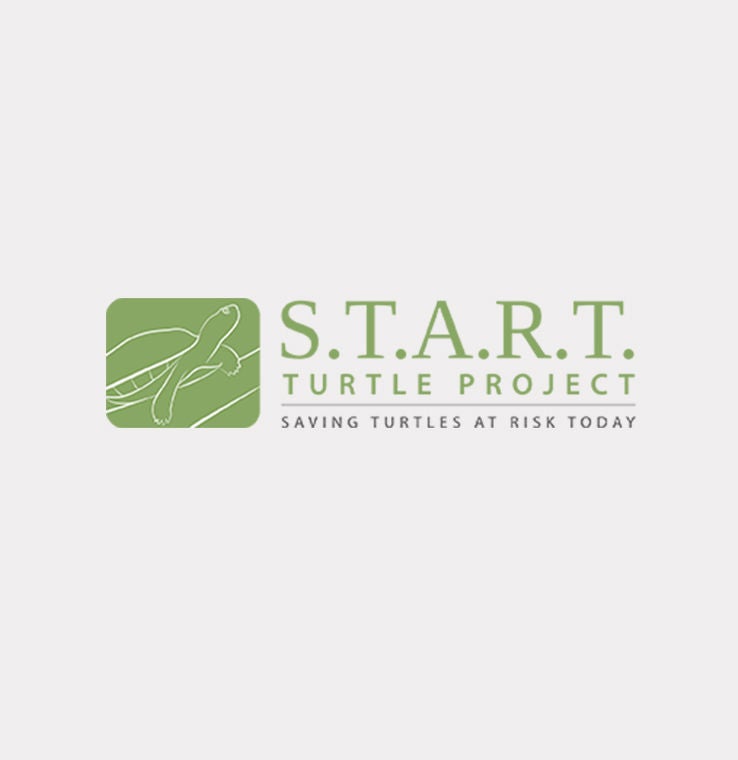

Turtles on the Road
When you see a turtle, whether in the wild or along the road, in the Lake Simcoe-Muskoka region, remember to call or text the S.T.A.R.T. hotline, 705.955.4284. It is especially important that you call in for rare species (all sightings), nesting females (any species), or injured/dead (any species) individuals.
From phone calls and follow up site visits, we map turtles on roads to determine hotspots, collect turtle nests to incubate the eggs, and collect data on turtles for monitoring and conservation. Saving even one turtle, especially if it is a female, can help local populations. An adult female can live for decades, laying eggs and helping to increase the population. Remember, turtles are not speed bumps. Help move turtles off the road when it is safe to do so. And call the hotline anytime you see a turtle.
Project Highlights
In collaboration with the Canadian Wildlife Federation, our partners at Scales Nature Park are busy working on the Saving Turtles at Risk Today Project in the Simcoe/Muskoka area in Ontario. Over 30 project staff and volunteers participate each year in "Turtle Boot Camp," an intensive two week training program. The project's “turtle hotline,” designed to encourage local residents to report turtles continued to gain traction, with the team fielding more than 800 calls in 2022 alone. The turtle teams survey for turtles, collect valuable data on movement patterns and habitat use, identify areas of high mortality on roads, and collect and incubate turtle eggs.
Results
- More than 1,600 Blanding’s Turtles have been individually marked to better understand the size of the population.
- More than 4,000 km2 of wetland habitat have been protected by CWF and Scales Nature Park.
Road Results
- More than 2,800 turtles have been found dead on roads over the past five years.
- More than 2,400 turtles were safely moved off roads during the same time period.
Egg Incubation
- Turtle eggs are collected each summer and incubated in captivity to help increase wild populations.
- 70,000 hatchlings have been released back into the wild over the past nine years.
Outreach
- More than 3,200 calls or texts were received by the START hotline (705-955-4284) over the past four years.
- More than 18,000 members of the public have been engaged in turtle events .
Conservation
Freshwater turtles as a group are declining across Canada. All eight species of freshwater turtles found in Canada are at risk.
The threats are relatively well studied. Road mortality and habitat loss are having the largest impact on turtle populations in general. Turtles often have to cross roads to find suitable nesting sites, which puts females at risk of being struck by vehicles. These females should lay eggs for decades to produce the next generation of turtles, and if they are killed the next generation will be reduced or even eliminated. The roadsides themselves often prove to be a nesting site of choice since they contain ideal gravelly shoulders, but this places both the females and young in a dangerous high traffic area.
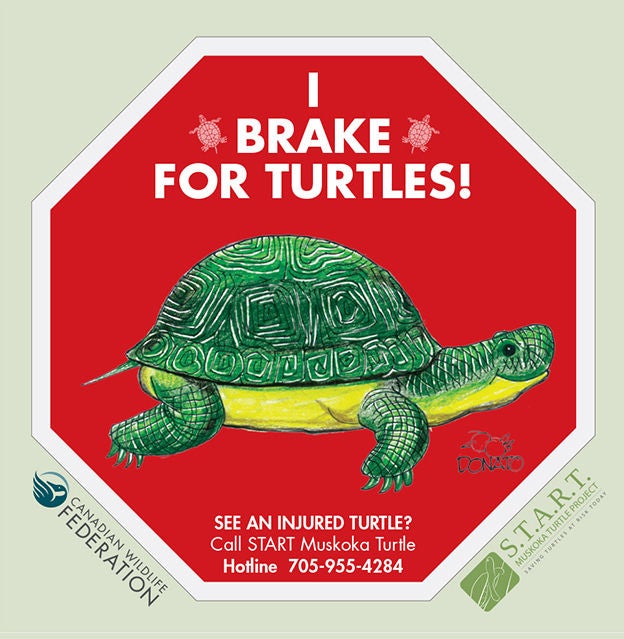
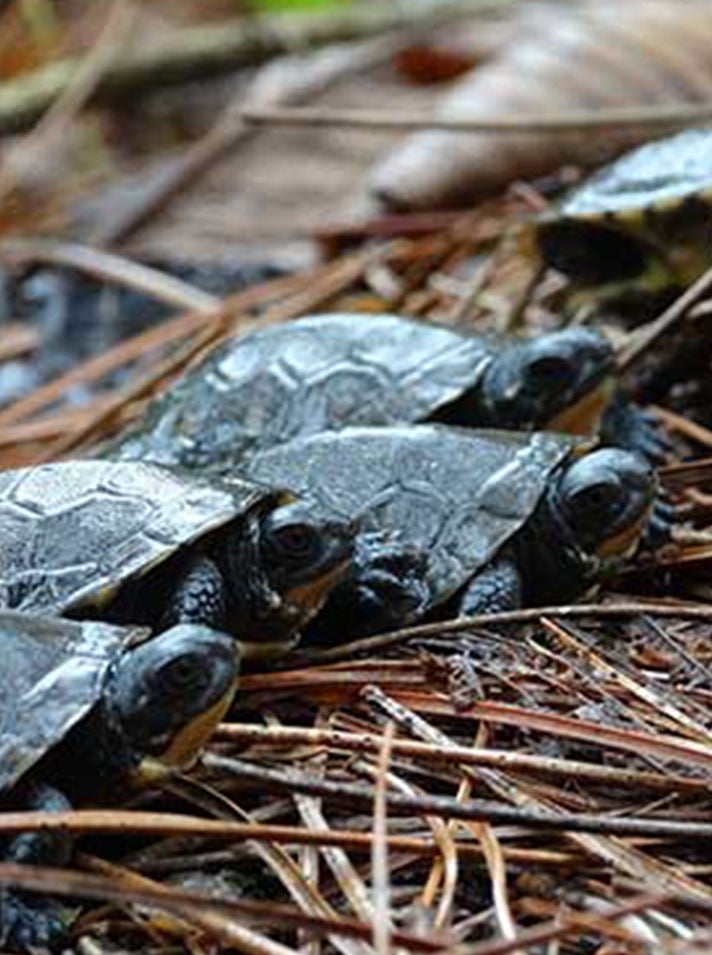
Community Outreach
S.T.A.R.T. project staff continue to participate in a number of festivals and community events in Muskoka and surrounding area. Public engagement and awareness is essential in turtle conservation. Engaging the local community bolsters support for turtle conservation and can lead to direct actions to safeguard turtles. Things you can do to help include the following:
- Healthy turtle populations start with a healthy habitat. Help improve turtle habitat by participating in local lake, river or community cleanups.
- If you find turtles in a safe place, leave them there.
- Don’t litter
- If you see a turtle on the road, and it is safe for you to help it, please move it across in the direction it was going. Don’t take it back to the water- it may be going to lay eggs somewhere else!
- Leave fallen trees and branches in place along shorelines. Turtles use these as a platform for basking in the sun.
- Don’t buy real tortoiseshell barrettes, brushes, ornaments or jewellery.
- Support CWF and its turtle and habitat projects.
- If you find an injured turtle, you can take it to a wildlife rehabilitation centre for treatment. Saving one turtle can be a big help, since they are supposed to live for such a long time and lay eggs every year.
Gallery
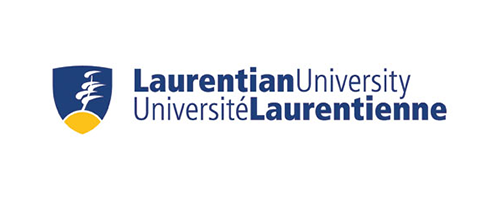


- 0
- 1



